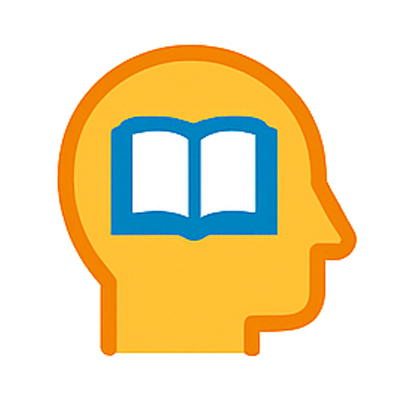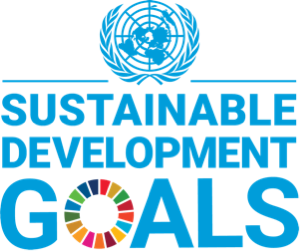Policy Statement
In reference to the Enhanced Basic Education Act (R.A. 10533), the Universal Access to Quality Tertiary Education Act (R.A. 10931), and Commission on Higher Education (CHED) Memorandum Orders integrating the Sustainable Development Goals in higher education, Eastern Visayas State University (EVSU) reaffirms its mandate to provide accessible, inclusive, equitable, and high-quality education that nurtures globally competitive and socially responsible graduates.
EVSU shall:
Ensure access and equity by upholding policies and programs that expand opportunities for disadvantaged, marginalized, and vulnerable learners, guaranteeing that no student is left behind.
Integrate sustainability, resiliency, and climate action across academic programs, research, and extension initiatives to prepare graduates as leaders in addressing global and local development challenges.
Advance academic excellence and innovation by adopting outcomes-based and learner-centered pedagogies, digital learning platforms, flexible learning modalities, and global best practices in teaching and research.
Strengthen faculty development and academic leadership through continuous training, advanced studies, international linkages, and professional development programs.
Promote lifelong learning by supporting continuing education, technical-vocational programs, micro-credentials, and alternative learning pathways for diverse learners and professionals.
Foster research and knowledge production that generates innovative, interdisciplinary, and community-responsive solutions aligned with national development priorities and the UN SDGs.
Build global partnerships with academic institutions, industries, and international organizations to enhance student mobility, faculty exchanges, collaborative research, and cross-cultural learning opportunities.
Institutionalize inclusive learning environments that embrace cultural diversity, gender sensitivity, and the needs of persons with disabilities (PWDs) and indigenous peoples.
Through these commitments, EVSU envisions itself as a leading model of quality, inclusive, and sustainable higher education that empowers graduates to be agents of transformation and resilience in the Eastern Visayas region and beyond.
PROPORTION OF GRADUATES WITH TEACHING QUALIFICATION
Eastern Visayas State University (EVSU) remains steadfast in its mission to produce competent and service-oriented educators who can contribute meaningfully to the development of basic education in the Philippines. Through its flagship teacher education programs——including Elementary and Secondary Education, Technical-Vocational and Livelihood Education, Culture and Arts Education, and Physical Education—the university ensures a steady supply of teachers who are job-ready, licensure-eligible, and responsive to evolving educational challenges equipped with the professional qualifications required to teach at the primary school level.
Each academic year, EVSU produces a strong number of graduates who successfully complete rigorous instruction and training mandated by the Commission on Higher Education (CHED) and aligned with the standards of the Professional Regulation Commission (PRC). These programs cultivate foundational pedagogical skills, subject matter expertise, and hands-on teaching experience through practice teaching in partner public and private schools within the region.
As part of its quality assurance framework, the University integrates outcomes-based teaching and learning, regular curriculum evaluations, and continuous enhancement of teaching laboratories and learning facilities. Strong linkages with DepEd offices and local school communities further reinforce the practical readiness of future teachers.
EVSU proudly reports that a significant proportion of its graduates from the School of Education earn qualifications that entitle them to teach at the primary school level upon graduation. This performance demonstrates the University’s continued contribution to improving access to quality education in Eastern Visayas and beyond—ensuring that more children are guided by capable, compassionate, and well-prepared educators.
Proportion of graduates with Teaching Qualification
| PROGRAM / CATEGORY | 2023 | 2024 | 2025 |
|---|---|---|---|
| Number of Graduates across campuses | 4,567 | 4,258 | 4,484 |
| Total Number of graduates with relevant qualifications for teaching | 1,433 | 1,237 | 1,429 |
| Bachelor of Science in Elementary Education | 226 | 228 | 251 |
| Bachelor of Science in Secondary Education | 543 | 412 | 503 |
| Bachelor of Technology and Livelihood Education | 188 | 133 | 149 |
| Bachelor of Technical-Vocational Teacher Education | 248 | 185 | 228 |
| Bachelor of Culture and Arts Education | 46 | 49 | 58 |
| Bachelor of Physical Education | 182 | 230 | 240 |
| Proportion of Graduates with Teaching qualifications | 31.4% | 29.1% | 31.9% |
EVSU ensures program relevance through the following:
- CHED-aligned Curriculum based on Outcomes-Based Education (OBE)
- Compliance with Professional Regulation Commission (PRC) standards
- Extensive Teaching Practicum in public and private schools under DepEd partnerships
- Academic and pedagogical formation built on learner-centered, inclusive, and technologically enhanced practices
- Competency development aligned to K to 12 program requirements
These mechanisms guarantee that graduates are not only qualified but are also well-prepared for the realities of classroom teaching, including literacy and numeracy challenges, digital learning transitions, and diverse learner needs.


















